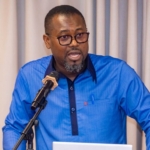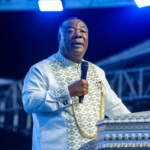
The Korle Klottey MP, Dr Zanetor Agyeman-Rawlings, has criticised Ghana’s political culture, warning that the obsession with elections is undermining the nation’s progress.
Speaking on JoyNews’ Talk No Dey Cook Rice podcast, she said leaders must stop pandering to populism and start making the tough choices that secure the country’s future.
“It seems as though we’re constantly chasing elections, and the populism thing is just becoming so central to what is always being done that we are not paying enough attention to what is the right thing to do, not just for today, but for tomorrow, for generations yet unborn.”
She argued that good governance cannot be reduced to clean elections or winning popular favour.
“Good governance is not just about going for elections and having a certain level of trust, transparency, and fairness.
“What are the things that you’re doing for the people? Are you delivering on time? Are you making sure that the dignity of their citizen is respected? Are you making sure working conditions are good enough?”
Dr Agyeman-Rawlings noted that leadership must demand more from citizens while also holding those in high office to stricter standards.
“You can’t expect that the citizens should do the right thing, and yet those who are given higher levels of responsibility and greater access to the nation’s wealth are held to a different standard.”
She pointed to glaring double standards in law enforcement.
“I just saw recently on JoyNews where a trader who damaged some part of the overpass was put away for two years in jail. Is it too harsh? I’m not going to comment on that, but are we going to be able to do that to a public servant, a politician, who does the equivalent of damaging that where a road should have been built and it wasn’t done, it’s full of potholes, they got the money, we can’t account for how the money translated into a road being built, but they are walking free?”
The MP lamented that young people feel ignored and excluded from shaping policies that affect them.
“You have a lot of young people who feel like they don’t matter. They are not heard in designing policies. Nobody’s asking them, what are you actually interested in?
“You have sometimes people designing a thing and saying, this is what we’re giving to the youth. But maybe that’s not what they want.”
She warned that this disconnect feeds apathy and poor citizen engagement.
“We’ve steadily moved away from this sense of being a part of the thing to being outsiders of governance.
“And when you don’t have leadership that is willing to bring the people along as well and expect more of people, you create a feeling of, well, what difference does it make anyway?”
For her, leadership must be willing to take unpopular but necessary decisions. She drew lessons from other countries.
“People look in envy at Rwanda. Do you know what it’s like to be there? You can’t litter the way you do over here. There is zero tolerance for selling in the wrong space. You cannot take plastic into Rwanda. Simple as that.
“People brag about Malaysia and Singapore. What it took to get them where they are. Are we prepared to do that? You’re not allowed to chew gum in Singapore. It’s as simple as that. No exceptions made.”
She insisted that Ghana must draw a line and demand higher standards in governance and accountability.
“When we’re bringing the bar so low because we feel that it’s okay to do that and get away with it because of politics, I don’t understand that. We have to, at some point, draw the line and do what is right for the people of Ghana.”




